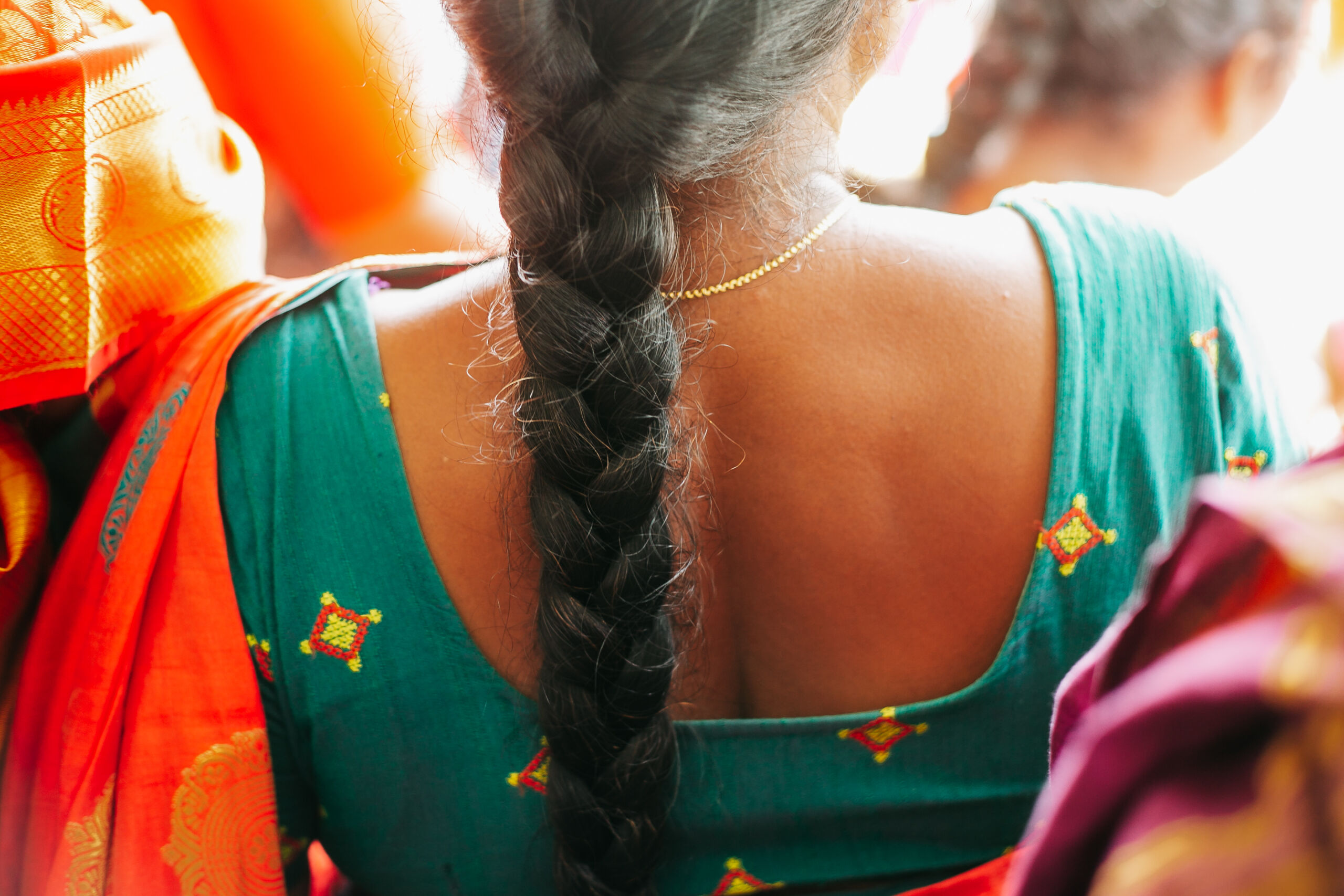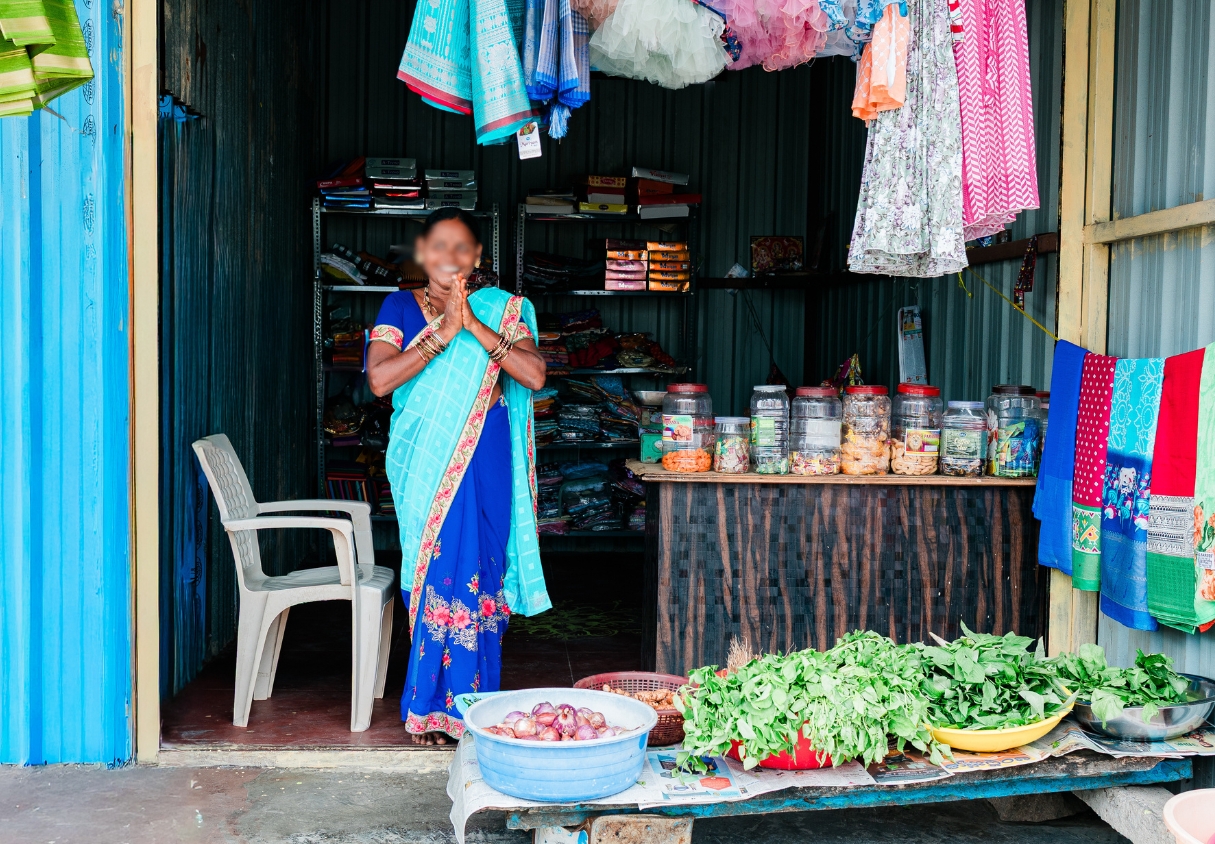
Twenty years ago, Mahima lived trapped in a life of ritual prostitution.
It’s a horror too difficult to comprehend. Yes, it is illegal, and the government fights for women who struggle against the chains of this ancient practice. They even offer pensions and land grants so survivors can restart their lives. Every layer of the justice system advocates for women caught in the jogini or devadasi system, as it is known across South Asia.
Rooted in misunderstandings of religion and blessing, this form of sexual slavery preys on the poor, the vulnerable, and little girls.
But not anymore. DFN community health workers advocate for women and their children in over 1,400 villages every year. Their efforts have been so successful that in one area that there will be no new dedications by 2026. Read that again, and then give thanks.
By 2026, young girls will never again be subject to the abuse of sexual servitude in one large region of South Asia. Never, ever again.
How? How does an entire region of a vast country eliminate an ancient ritual tied to religion, culture, and family heritage?
One woman, one family, one village at a time. ‘Til all are free.
Forty years ago, Mahima numbered among those little girls. Her family lived in extreme poverty. With her father unable to find work and her mother caring for children at home, they faced starvation and homelessness. Mahima’s aunts came to her family with a solution: dedicate her to the temple goddess. Doing so, they said, would bring favor upon her family and solve all their financial burdens. Mahima’s ancestors had made this choice. It was in their family legacy and part of her duty, so they said.
No mother or father wants this for their daughter. And yet, they felt desperate.
So at just five years old, in an elaborate ceremony, Mahima was presented with honor and flair to serve the men of her village when she entered puberty. (Take a moment to let that sink in.)
From about the age of twelve to thirty, Mahima endured a life filled with every kind of abuse, night after night and day after day.
Then she had a son. Mahima began to wonder if there was a way out.
Then she had a daughter and she knew she needed out. She couldn’t risk her daughter suffering the same fate. But how?
Surrounded by a divine bubble of courage, Mahima began to search for answers.
Soon, the men who abused her would turn to her children.
She found hope in a new friend, a DFN Community Health Worker. Of course, she had no idea who Vanya worked for or that she, too, had been a jogini. She only knew her kind smile and compassionate care.
After several months of afternoon tea, Vanya shared her story. Mahima broke down in tears of hope. “Oh, please, Vanya. Is there really a way out for me and my children?”
“Yes. Yes there is. Let’s get started.”
Exiting the jogini life is dangerous. One cannot simply declare to the men in the village, “I am no longer available.” That would be met with violence. (Yes, we have stories to tell.) So, over several weeks of careful planning, Vanya found a new village for Mahima and her children. The children began attending school, and Mahima started learning to read, write, and manage finances.
Most importantly, she learned to live with freedom and dignity. Rising above the shame of “the life” ranks as one of the most challenging aspects of learning to thrive. Vanya and a host of new friends provided the constant financial, emotional, and spiritual support Mahima needed to sustain her new life.
One woman. One Family. ‘Til all are free.
Mahima sensed a rising drive to rescue other women like her.
She also wanted to prevent other little girls from her fate. With courage and boldness, she began to proclaim the freedom she had found. Mahima started working alongside Vanya, one woman, one family, at a time. She offered essentials like food and healthcare. She helped children enroll in school. And she sat for long afternoon teas, building friendship and trust until another woman was ready for freedom.
Mahima was a born leader, and her influence gradually grew. Over the past decade, she has transformed entire villages by working with individual women and families. Her influence has also led to partnerships with village leaders and regional magistrates, who respect her and take action to protect women and girls in their communities. Because of her, girls in this region of South Asia will never suffer as she did.
This is how we can declare: Never, Ever Again.
Because one woman, one family, one village at a time. ‘Til all are free.
We believe that one day this practice will be completely eliminated, and we will work tirelessly in over 1400 other villages to that end.
You can help! You can become a Promise Partner for $35/month. Your gift will provide the resources that brave women like Mahima need to support families who need to keep their daughters safe.
You will provide everything a village needs:
- education for children
- outreach events for women
- skills training
- accessible healthcare
- food kits for hungry families
- rescue for vulnerable children when needed
- spiritual and emotional support
You and I have a unique opportunity to promise hundreds of new families like Mahima’s essential, life-saving support so that little girls are never, ever trafficked again.
Let’s tell the next generation of our daughters,
“Never, ever again. You are safe.
Play. Dream. Learn. Become the beautiful woman God created you to be.”
One child. One Family. One Village. ‘Til all are free.




